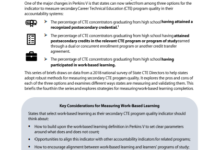North Dakota launched the Dakota Nursing Program (DNP) in 2004 to strengthen the state’s pipeline to health care and medical professions. The program operates through state and local partnerships with community colleges, hospitals and health care facilities to train and retain local talent in rural communities. Over the past 12 years, DNP has provided nursing education in 13 locations in partnership with four community colleges, including Bismarck State College, Dakota College at Bottineau, Lake Region State College, and Williston State College.
The four community colleges collaborate to provide education for a practical nursing certificate and an associate degree in nursing. The Practical Nursing Certificate Program is an 11-month program. Upon graduation, the student becomes eligible to take the national licensing exam to become a licensed practical nurse (LPN). Students who hold a current registration as a paramedic and have completed the nursing general education credits can complete the Paramedic to Nurse Program and graduate with a Practical Nursing Certificate after one semester.
- The Associate Degree in Applied Science in Nursing Program (ADN) allows graduating students to take the national licensing exam to become a registered nurse (RN).
- DNP also has articulation agreements with three universities across the state, allowing students to earn their bachelor’s in nursing within within two years after receiving their ADN.
Courses are delivered through a combination of face-to-face labs and virtual classes through the statewide Interactive Video Network (IVN). IVN is a key component of DNP as it connects students in real time to in-person classrooms in other parts of the state. This allows students in rural communities to access a limited pool of industry experts and learn in a simulated, safe space. As part of the agreement between DNP and a local hospital or facility, the hospital commits to hiring a clinical faculty member to oversee the learners’ labs and clinical work. The local site also agrees to dedicate the space and equipment for the course as well as any equipment needed to establish the IVN component of the program.
Policy in Action
DNP serves approximately 300 students annually. Since 2005, a total of 3,163 students have graduated from one or both of the programs, and graduates have shown the success and impact of DNP. On average, DNP graduates score higher on the national licensure exam on their first try, compared to other students both in the state and around the country. In 2020, 156 students graduated from the Practical Nursing Certificate Program, with the vast majority (81 percent) continuing on to the ADN program. During the same year, 96 percent of graduates from the ADN program were employed as an RN, earning an average wage of $27.27 per hour.
Related Links
Website: Dakota Nursing Program
Brief: CTE On The Frontier
Snapchat: DNP 2020 Graduate Survey
One-pager: DNP PN Program Outcomes
One-pager: DNP ADN Program Outcomes (2018-21)
Presentation: A Road Map to the Dakota Nursing Program
Last updated April 2022






